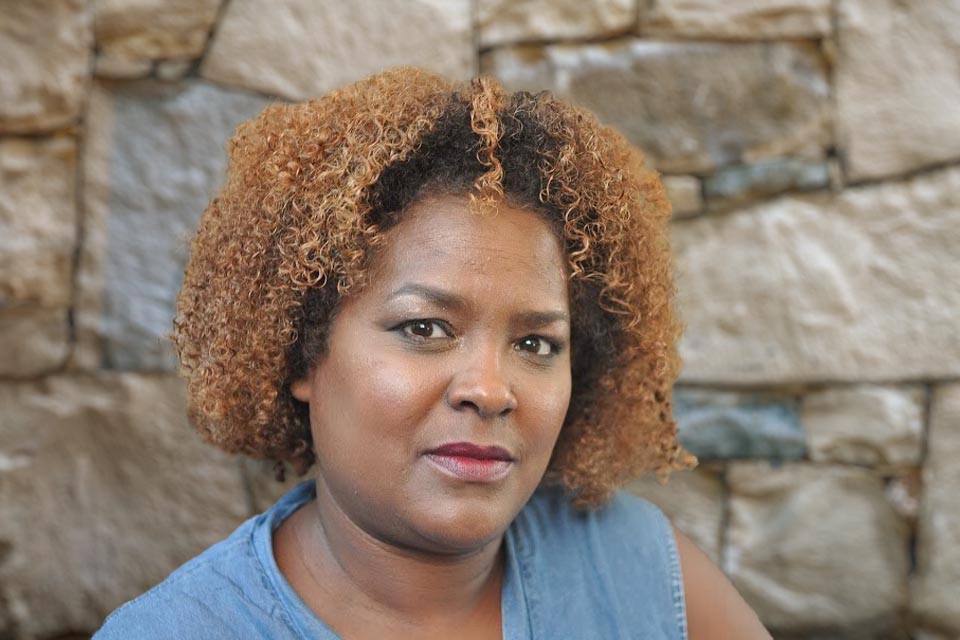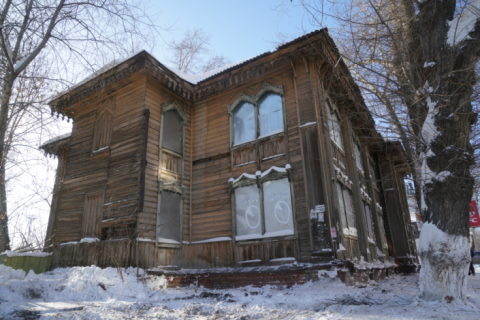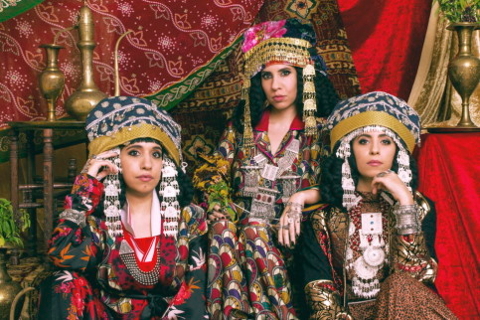Fighting on Behalf of Ethiopian Jews

Mola is at Brandeis this academic year, analyzing oral histories of Ethiopian Israeli women.
Jan. 19, 2023
By Penny Schwartz, P'13
As a child living in Ethiopia, Shula Mola dreamed of going to Israel.
A member of the African country's nearly two-millennia-old Jewish community, she celebrated one of its unique holidays, Sigd, where celebrants fast, read from the scriptures, and pray for a return to Zion.
"I remember the strong feeling that surrounded us all, that soon our dream would come true: to reach Jerusalem," Mola wrote in an essay earlier this year.
Mola arrived in Israel in 1984 at age 12, but life in the country hasn't been what she imagined. Ethiopian Jews, in her experience, face mistreatment, discrimination, and injustice.
Today, she is one of the community's leading activists, a board member of the New Israel Fund, a group advocating for equality for Israel's minorities, and a co-founder of Mothers on Guard, which the Israeli newspaper Haaretz described as the "Black Jewish wall of moms fighting Israeli police brutality." She was recently named one of Israel's 50 most influential women by the country's leading economic newspaper, Globes.
"Israel is my home," Mola said in an interview. "I care about Israel and want it better."
This academic year, as a resident scholar at the Hadassah-Brandeis Institute (HBI) and fellow at the Schusterman Center for Israel Studies, Mola has worked on an ongoing project documenting the traditions, history, and customs of Ethiopian Jewish women.
"It is an honor to host Dr. Mola as a colleague at HBI this term and to support her research," said Lisa Fishbayn Joffe, HBI's Shulamit Reinharz Director. "Her study of immigrant women's recollections of their individual and communal practices in Ethiopia will provide unique insight into the diversity of Jewish women's lives."
Arrival in Israel
Ethiopian Jews started coming to Israel in the late 1970s. As a result of efforts by Ethiopian Jews, the U.S., Israel, several other countries, and activists around the world, many more managed to leave over the next two decades. Today, there are some 160,000 Israelis of Ethiopian origin. The community is known as Beta Israel, or House of Israel in Hebrew.
Mola and her family left Ethiopia soon after famine and civil war broke out in the country in the early 1980s. They first escaped to Sudan, spent time in a refugee camp, and then arranged travel to Israel.
When she arrived at Ben-Gurion airport in Tel Aviv, a government official asked her name.
"Enanu," she answered, giving her birth name.
"'Would you like to be an Israeli? Do you want an Israeli name?" the official asked her.
"Yes, of course," she said and was given the name Shula by the government official.
But others in the country proved far less accepting of her new identity. At boarding school, some classmates taunted her for her dark skin color and challenged her Jewish identity.
But she excelled academically, becoming one of only a few Beta Israel members who go on to college. (Even today, fewer than 4,000 Israeli students of Ethiopian origin are enrolled in higher education).
At Hebrew University, she studied education and soon realized how differently members of the Beta Israel community were treated in Israeli schools.
Her younger brother, a special education high school student, was in a class too large to accommodate his specific needs, and she felt there was a lack of precise diagnosis for his particular learning challenges. She was even more disturbed when she realized that more than half the class was from the Beta Israel community and faced similar circumstances.
In 1994, she spoke to a large gathering of high-ranking government officials and education professionals.
"I'm angry, but I don't want to be angry. I want to change this reality,'" she told the audience.
Becoming an Activist
After this, Mola became increasingly involved in activism on behalf of the Beta Israel community. In the 1990s, she volunteered with the Association of Ethiopian Jews, eventually serving as the executive director for 10 years and later as board chair.
At the time, Mola said activists didn't use the term racist to describe how Ethiopian Jews were treated in Israel. Their experience was more often compared to the transition problems other immigrant groups faced in assimilating into Israeli society.
In the last decade, Mola has fought to have the plight of the Beta Israel community recognized as the result of discrimination and marginalization due to their skin color.
Israelis of Ethiopian descent have made significant gains in Israeli society in recent years with employment rates rising to almost par with the general population. But income levels remain around 40% lower, according to a 2018 report by the Myers-JDC-Brookdale Institute, an Israeli research center.
Fighting Police Brutality
Mola helped start Mothers on Guard in 2016 in response to a decision by Israeli authorities to close an investigation into the death of Yosef Salamsa, a 22-year-old of Ethiopian descent. Salamsa was tasered by police in Jerusalem two years earlier and found dead several months later. Police were never charged in the incident.
Four years ago, when an off-duty Israeli cop in Haifa shot dead an Ethiopian-Israeli teenager, Mola protested for months, demanding reforms in the criminal justice system.
In a newspaper editorial, the activist recounted a conversation with her son while she was out demonstrating.
"The police killed an Ethiopian boy. Why didn't you tell me that they are killing us?" he asked her over the phone.
"Sweetheart! My dear child," she told him. "There are stupid policemen — hotheads who kill people. They'll pay for what they did."
According to Haaretz, cases opened against Ethiopian minors were 4.3 times their share of the population between 2018 and 2020.
Mola said she's had to have "the talk" with her son where she instructed him on what to do if the police stop him.
"Don't be smart or cool. Don't get angry. After that, call your ima," she told him, using the Hebrew word for mother.
"It was the most painful moment," Mola said in an interview. "It was the hardest thing for me … to realize that I'm raising kids with limits on their freedom."
Preserving the Past
Several years ago, Mola began gathering the life stories of older members of the Beta Israel community to preserve and celebrate their history and culture.
The oral history project, which Mola has continued to work on at Brandeis, focuses on the experiences of women originally from the Ethiopian village of Enkash, including their belief in the supernatural spirit Zār and their use of menstruation huts called margam gojos. Her analysis examines these practices as forms of women’s resistance to patriarchy.
"Others are writing our story, and we repeat the stories they tell," Mola said. "I say no. I want to hear from the community and how our stories have been told by earlier generations."



